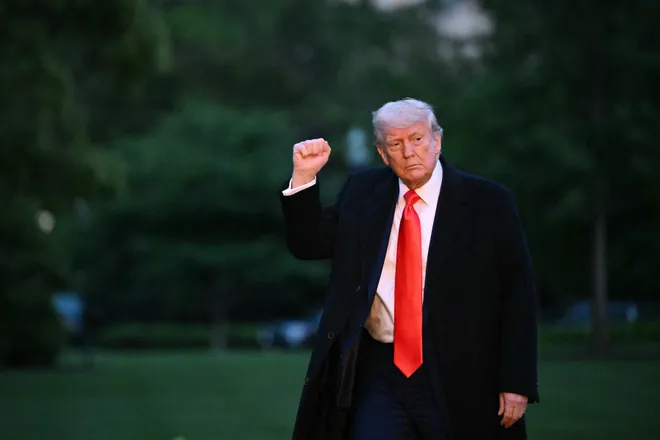Trump Reignites Trade Wars with Tariff Threats Against EU and Apple, Roiling Markets
May 23, 2025 – President Donald Trump escalated global trade tensions ahead of Memorial Day, threatening steep tariffs on the European Union and Apple in back-to-back social media posts, sending markets into turmoil after weeks of relative calm.
In a morning post on Truth Social, Trump warned Apple CEO Tim Cook that iPhones sold in the U.S. must be domestically manufactured or face a 25% import tax. Thirty minutes later, he called for a 50% tariff on EU goods starting June 1, citing stalled negotiations.
“The European Union has been very difficult to deal with. Our discussions with them are going nowhere!” Trump wrote, resurrecting threats paused in April after temporary de-escalation. While the administration recently struck a trade deal with the U.K. and eased tariffs with China, talks with the EU have faltered.
Market Fallout
The announcements rattled investors:
-
Apple shares dropped 2%, dragging down the tech sector.
-
The Dow fell 350 points, while the S&P 500 and Nasdaq lost 1.2% and 265 points, respectively.
-
Volvo Cars CEO Håkan Samuelsson warned a 50% EU tariff could block U.S. sales of its Belgian-made EX30 electric vehicle.
EU Backlash
European leaders condemned the move, which would impact $606 billion in annual EU exports to the U.S.—including pharmaceuticals, vehicles, and machinery. Key reactions:
-
France: Trade Minister Laurent Saint-Martin called the threats “not helpful” but vowed readiness to retaliate.
-
Germany: Foreign Minister Johann Wadephul dismissed the tariffs as counterproductive, pledging unified EU negotiations.
-
Italy: Foreign Minister Antonio Tajani reiterated hopes for a “zero-zero tariff” deal.
Apple in the Crosshairs
Trump’s direct targeting of Apple marked a rare company-specific tariff threat. While Apple plans to invest $500 billion in U.S. facilities by 2029, it remains reliant on Chinese manufacturing and is shifting iPhone production to India—a move Trump criticized.
With reporting by Zac Anderson and Medora Lee (Reuters)




